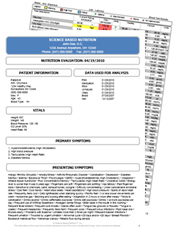Stress-Adrenal Burnout: Blood Testing is Key
There are two glands located above each kidney called the adrenals. They influence many body functions that are extremely important to our well-being. When the adrenal rhythm is abnormal it can affect a variety of areas.
Effects of Abnormal Adrenal Rhythm
- Energy production: abnormal adrenal rhythms lead to low energy levels, poor blood sugar regulation, and a hard time rising in the morning.
- Muscle and Joint function: Tissue healing may be compromised and tissue breakdown can lead to chronic pain.
- Bone health: If the morning cortisol level is too high or the evening cortisol level is elevated we become more prone to osteoporosis.
- Immune Health: The cortisol cycle if disrupted, can adversely affect the immune system and resistance to infection is reduced and allergic reactions can increase.
- Skin Regeneration: A normal cortisol rhythm is needed for optimal skin health. High cortisol levels at night prevent optimal skin regeneration.
- Thyroid Function: It is common for hypothyroid symptoms such as fatigue and low body temperature to be caused by adrenal dysfunction.
- Sleep Quality: High cortisol values at night and in the morning can decrease deep sleep resulting in a reduction of mental vitality and depression. Common symptoms may include feeling tired and fatigued during the day with the inability to sleep at night.
- Grain Intolerance and Stress: If the gut becomes inflamed within 30 minutes of eating grains it can cause increased cortisol and reduced DHEA.
What We Do
We can test for adrenal dysfunction and recommend customized treatment as well as preventative measures including diet and lifestyle changes, and proper supplementation based upon your individual test results.

